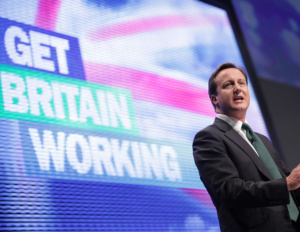[avatar]
Two weeks ago, I wrote about the new government’s pledge to purge £10bn of legal red tape by 2020 to benefit the nation’s businesses. I stated here my belief that whilst this is unquestionably a target worth aiming for, the efficacy of the initiative – spearheaded by the new business secretary Savid Javid – will likely be stymied by the actions of EU lawmakers. But in the past few days, some very interesting articles have been published detailing the EU’s response to long-standing allegations of meddling and the overregulation of markets, as well as the business response to the Conservative pledges.

On the whole, it seems that UK businesses have acknowledged the worth of the £10bn target but, as the FT reports, this is “tempered with a healthy dose of skepticism.” As was noted in the earlier blog, many thought the “bonfire of red tape” promised by the 2010 government failed to materialise, and have interpreted this as part of a larger trend of government inaction. The Director-General of the British Chambers of Commerce, for example, has warned that “every government [since Thatcher] has said they will cut or limit regulation and has signally failed to do it.” The views of such an eminent figure will undoubtedly be reflected more broadly across industry. And with the regulatory policy committee finding that net savings achieved through the coalition’s cutting of regulations from 2010 – 2015 were smaller than the costs imposed by new EU regulation in just 2013, they can clearly support this viewpoint too.
It should come as some relief to red tape skeptics then to hear that the EU has realised this cannot continue. Frans Timmermans, the Dutch Vice-President of the EU Commission, is the man that has been tasked by Jean-Claude Juncker with cutting down on the EU’s flabby regulatory framework. Seen by many political commentators as sympathetic to British concerns on regulation, Timmermans has now set out the EU’s “Better Regulation” programme which will implement the desired changes. So what exactly will this initiative entail? Some may be disappointed to hear that unlike the UK government the EU Commission has not put a quantitative target on the reforms, explaining somewhat loosely in a Q&A that it means “doing different things, and also doing them better.” But despite the lack of hard targets, it has been reported that Timmermans has ruled that only 23 laws will be proposed this year, down from a recent annual average of 130.
With David Cameron already crediting the Dutchman’s plans as a “significant step in the right direction”, we must hope that this news will be heeded by the nation’s Eurosceptic lobby.


